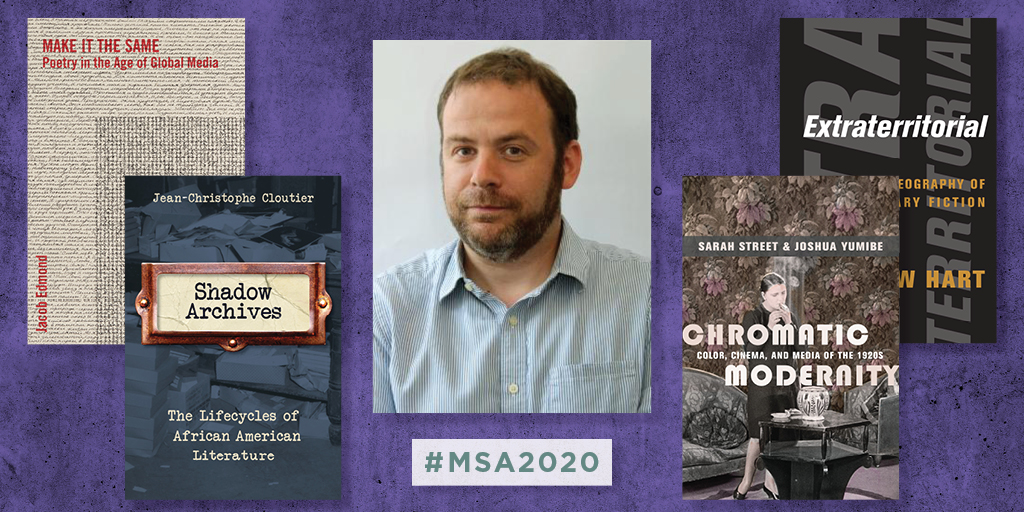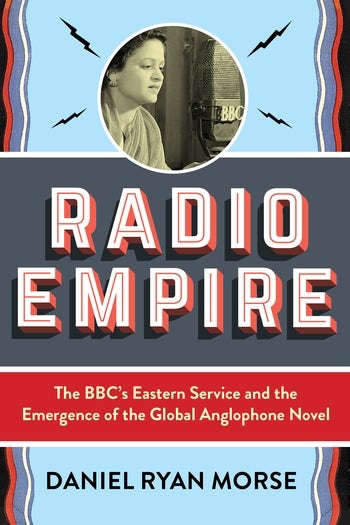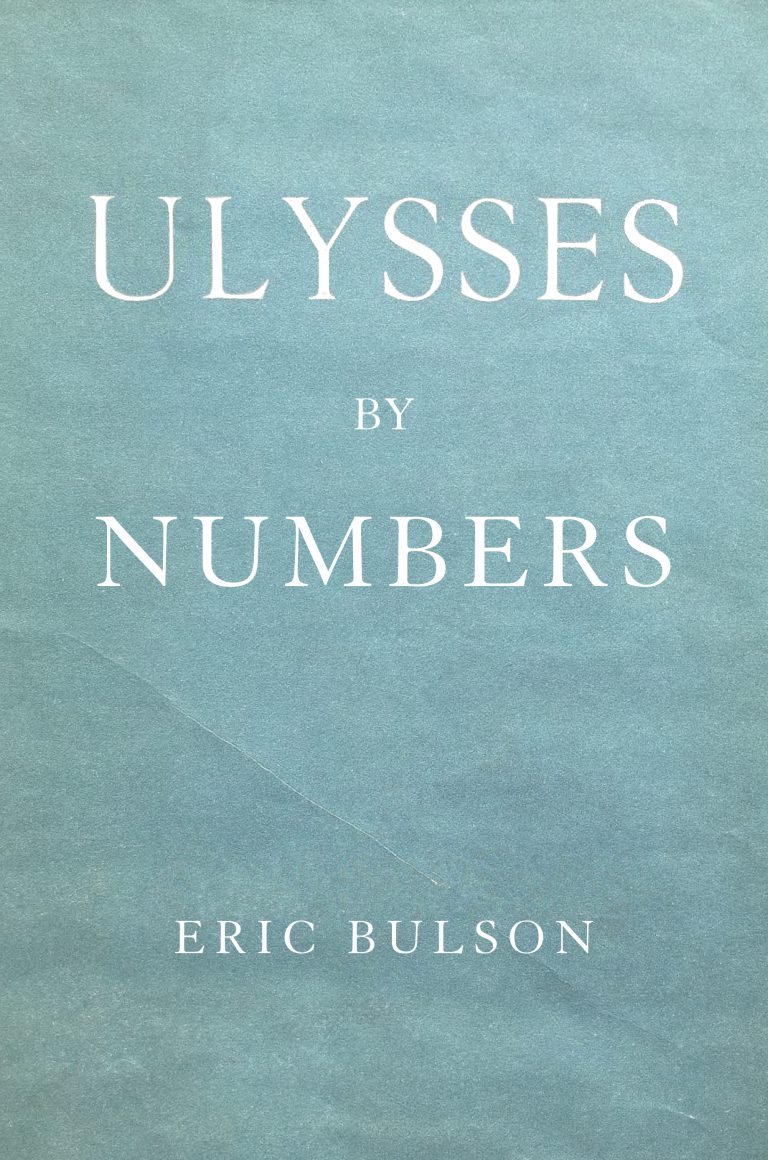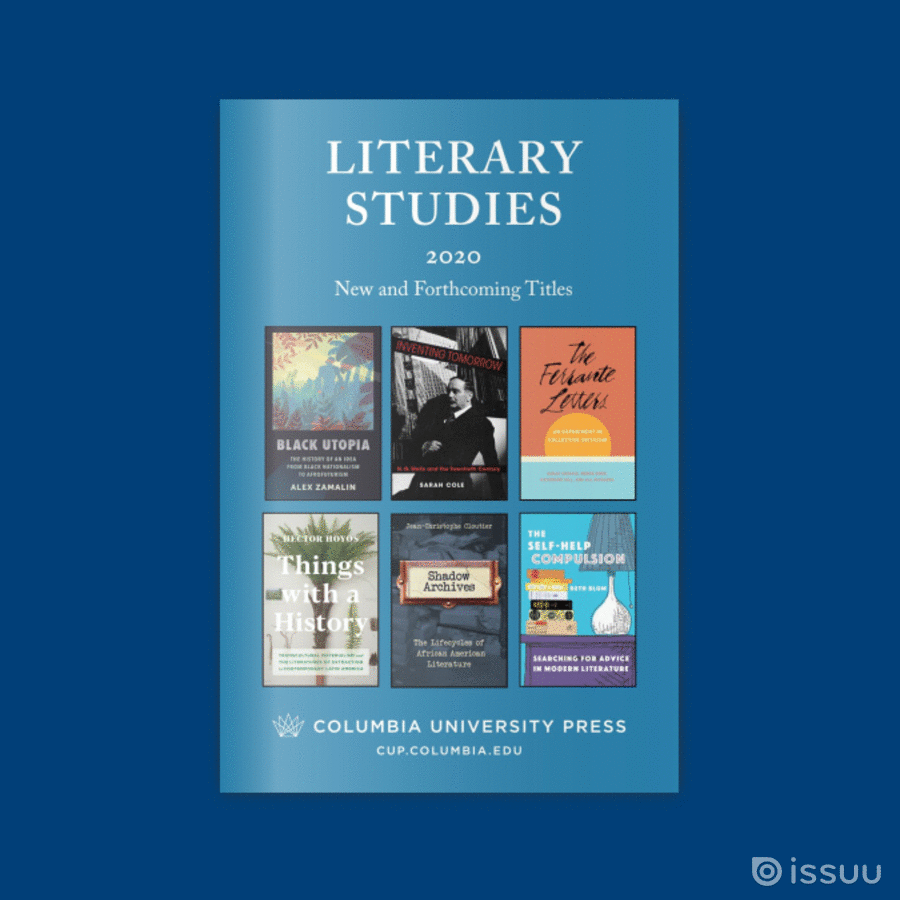Take a Tour of Our MSA Virtual Exhibit with Philip Leventhal

Hi, I am Philip Leventhal, editor for literary studies at Columbia University Press, and I would like to welcome you to our Modernist Studies Association virtual exhibit.
With each month that the COVID pandemic continues, we miss out on another occasion that in years past we would anticipate and look forward to. So while I am disappointed that this year’s Modernist Studies Association meeting in my hometown of Brooklyn has been canceled, I am very happy to share with you some recent books we’ve published.
Throughout the week we will be featuring various books on this blog and on social media, so please check back.
First off, I wanted to congratulate the authors of the three books that were shortlisted for MSA book prizes this year. Jacob Edmond’s Make It the Same: Poetry in the Age of Global Media and Chromatic Modernity: Color, Cinema, and Media of the 1920s, by Sarah Street and Joshua Yumibe, were both shortlisted for the Book Prize. And Jean-Christophe Cloutier’s Shadow Archives: The Lifecycles of African American Literature has been shortlisted for the First Book Prize.
Speaking of first books, we have three very exciting new books in the Modernist Latitudes series from first-time authors:
In Radio Empire: The BBC’s Eastern Service and the Emergence of the Global Anglophone Novel, Daniel Ryan Morse examines how the BBC’s Eastern Service, initially created as a counterweight to broadcasts from Nazi Germany, became a cauldron of global modernism. Morse combines literary history with media and postcolonial studies to show how modernist writers used radio to experiment with form and introduce postcolonial literature to global audiences. Reading James Joyce and E. M. Forster alongside Attia Hosain, Mulk Raj Anand, and Venu Chitale, Morse demonstrates how the need to appeal to listeners at the edges of the empire formed an invisible but influential global network.
In another book that considers transnational aspects of modernism, The Fury Archive: Female Citizenship, Human Rights, and the International Avant-Gardes, Jill Richards examines how radical women’s movements and various avant-gardes were contact with one another and offered a radical alternative to liberal discourses of suffrage and human rights in formation at the same historical moment. What emerges is a history of women’s rights as practiced by female arsonists, suffragette rioters, industrial saboteurs, self-named terrorists, lesbian criminals, and queer resistance cells. Later this week, we will be posting a conversation about the book among Jill Richards, Sangina Patnaik, and Kelly Mee Rich.
Rounding out the trio of first books is Midcentury Suspension: Literature and Feeling in the Wake of World War II, by Claire Seiler. In the book, Seiler asks the question, How did literary artists confront the middle of a century already defined by two global wars and newly faced with a nuclear future? Looking at the work of W. H. Auden, Samuel Beckett, Elizabeth Bishop, Elizabeth Bowen, Ralph Ellison, and Frank O’Hara, she argues that a sense of suspension—a feeling of being between beginnings and endings, recent horrors and opaque horizons—shaped transatlantic literary forms and cultural expression in this singular moment.
Taking a slightly different tack, Eric Bulson returns to Ulysses for not the words but the numbers. In his aptly titled Ulysses by Numbers, Bulson demonstrates how numbers provide access into Joyce’s creative process, the history of the book’s publication and reception, and new perspectives on the proportions that continue to structure, organize, and pace the reading experience. The book also intervenes in debates about the use and abuse of quantitative methods in literary analysis. We will be featuring a video by Eric later this week, and he can explain more!
Though it’s not a modernist studies books per se, I did want to draw your attention to Extraterritorial: A Political Geography of Contemporary Fiction, by the current president of the MSA, Matthew Hart. In the book, Hart examines how extraterritorial spaces—United Nations headquarters, international waters, CIA black sites, and the departure zones at international airports, among others—have become central to contemporary authors and artists in their depiction of how the state continues to assert its power in a world characterized by both mobile and tenacious borders. Later this week we will also be featuring a video of Matt discussing the book.
Finally, I wanted to also mention two books from last year that continue to speak to contemporary concerns: Viral Modernism: The Influenza Pandemic and Interwar Literature, by Elizabeth Outka, and Inventing Tomorrow: H. G. Wells and the Twentieth Century, by Sarah Cole.
These books and others from our list in modernist studies are now available at 20% off with the discount code MSA20.
Categories:Book ExcerptLiterary StudiesModernist Studies AssociationVirtual Exhibits
Tags:Chromatic ModernityClaire SeilerDaniel Ryan MorseElizabeth OutkaEric BulsonExtraterritorialInventing TomorrowJacob EdmondJean-Christophe CloutierJill RichardsJoshua YumibeMake It the SameMatthew HartMidcentury SuspensionModernismModernist LatitudesPhilip LeventhalRadio EmpireSarah ColeSarah StreetShadow ArchivesThe Fury ArchivesUlysses by NumbersViral Modernism









